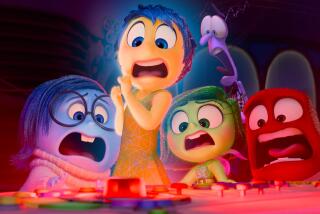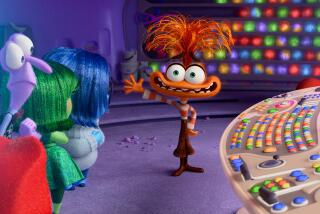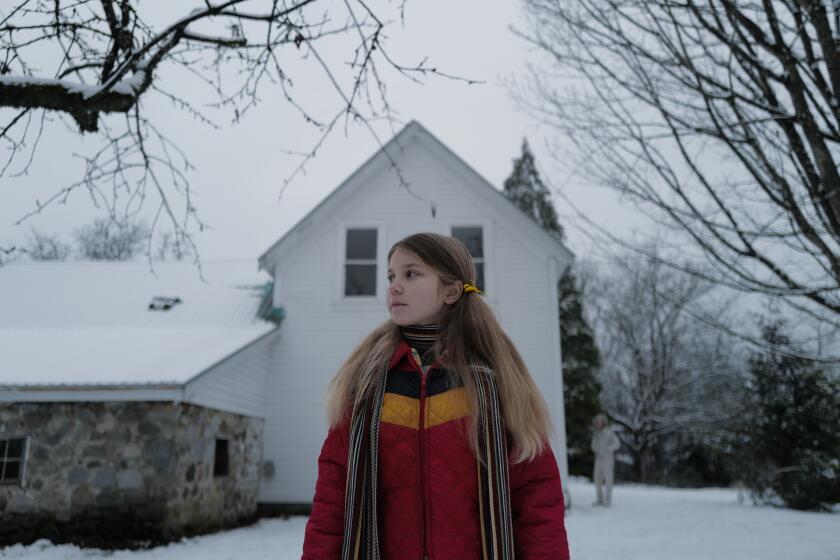‘Teenage Mutant Ninja Turtles’: How it broke the remake curse
“Teenage Mutant Ninja Turtles” didn’t shatter the creative mold this weekend, but it did break a streak, and a rather inauspicious one at that—the trend for remakes of properties from the 1980s and early ‘90s flubbing at the box office.
“Turtles,” which was panned by most critics and eye-rolled at by tastemakers, nonetheless took in a flying $65 million, good enough for the fourth biggest opening ever in August and the eighth largest opening of the year. The numbers give it a shot for $150 million total (what with some weak competition in the remaining weeks of summer) and put it in serious hit territory.
The cold streak “Turtles” broke isn’t a small one. It’s been a period when remakes of films from that period of a quarter-century or so ago once known as “the past” and now known as “movie’s primary vein of source material” have been able to attract only niche audiences -- “Endless Love,” “Robocop” and “About Last Night” in one weekend earlier this year alone, not to mention “Fame,” “Arthur,” “Red Dawn,” “The A-Team” and plenty of others in recent years.
One thing that “Turtles” has going for it that most of these releases don’t, of course, is family-film appeal. Studio Paramount reported that 55% of the audience for “Turtles” this weekend was older than 25 -- no doubt partly a function of us remembering the property from our own childhoods – but that still means that a good portion of the people who turned out to see Michelangelo & Co. were younger filmgoers simply taken by the general notion of upright wisecracking turtles. (The film is rated PG-13, but for “scifi-action violence,” and at least judging by anecdotal reports, there were plenty of younger moviegoers with their parents at theaters this weekend.)
Attracting both sides of this demographic aisle has long been the holy grail of moviedom. Studios call it the “introduce it to a new audience” dynamic, which you’re right to read as code for “take an old brand that has some nostalgia appeal for adults and something of a freshness factor for younger ones and hope you scrounge together enough people from each to have a hit.”
The thing is, it rarely works, and it’s always seemed to me that there’s a particular reason for that: the two audiences are actually pretty separated from one another. An older audience may carry some nostalgia for the property, but the younger half of the equation, for many of these films, is not going to want to head to the theaters with said older audience. The teenagers to whom “Robocop” appeals would rather do anything but go to the movies with their parents who saw and loved the original “Robocop.” For all of the ostensible appeal of these remakes to studios, they’re essentially trying to attract two distinct audiences.
That is, unless the new film appeals to an audience young enough that they’re still at the age they might want to go to the movies with the nostalgists. In other words, with a film like “Turtles,” where the audience that remembers it from childhood and the audience at which the new film is aimed actually attend movies together. It doesn’t seem like a coincidence that one of the few other ‘80s remakes to work in recent years was “The Karate Kid,” which also skews younger. The 9-year-olds who like Jaden Smith wanted to see his new movie, so they went with their 35-year-old parents who themselves were 9 when the original hit theaters. (That “Turtles” continues to hold appeal with a younger audience via a new Nickelodeon TV show doesn’t hurt either.)
Remaking films in the family realm hasn’t been necessary (er, has been even less necessary) in this modern era, since there are so many companies doing strong originals on their own — Pixar, DreamWorks Animation, Illumination, etc. But even those companies are getting more into the sequel game, and it wouldn’t be surprising if we saw more reboots of the Turtling kind. Adult nostalgia doesn’t translate into a hit. But adult nostalgia + a movie kids want to see just might. Can new versions of “The Lion King” and “The Little Mermaid” be far behind?
More to Read
Only good movies
Get the Indie Focus newsletter, Mark Olsen's weekly guide to the world of cinema.
You may occasionally receive promotional content from the Los Angeles Times.







